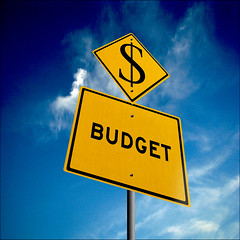5 Easy Steps to Keep Your Budget Balanced
If you want to avoid unnecessary debt, it is important that you know how to keep your budget balanced. In fact, if you can keep your budget steady, it is not impossible for you to start saving money. Controlling your money spending habits can be done if you will follow these five easy steps to maintain your budget:
- Establish your income – this is the first step that you have to take in order to keep your budget balanced. You should be able to determine how much is your take home pay and how often you receive your salary. Some workers receive their pay every week while there are those who get paid on a monthly basis. Knowing how much is your overall income will help you create a successful budget.
- Classify your expenses – know the bills that you need to pay every month. Aside from food, utilities and credit card or loan payments, you should be able to identify your miscellaneous expenses. List down your extracurricular activities and determine how much you spend for these activities, like do you have a weekly movie date with friends or how often do you go out for family dinner. Once you know your expenses, tracking it will become a lot easier because you know where you money actually goes.
- Keep your checkbook balanced – the last thing you want to happen is to pay penalties of overdraft checks or any banking errors. It will be much better if you keep track of your checkbook at the end of each day. Also you have to make sure that you compare your bank statement and checkbook to make sure that there are no discrepancies between the two. You can do this manually or use budgeting software to make the task a lot easier.
- Cut-corners if you can – study your list of expenses and challenge yourself to cut down your expenses in areas where you have control. There are fixed expenses and variable ones like entertainment, grocery and gas expenses. If you can trim down your variable expenses it could mean more savings for you. Make sure that you set aside certain amount of money to cover up unexpected expenses.
- Income vs Expenses – when you add up your expenses and subtract it from your income, is the result negative? If your answer is yes, then it means you are living beyond your means. On the other hand, if you still have some money left, then you can split this amount into different savings like emergency fund or additional retirement fund.
Your primary goal in keeping your budget balanced is to put more money in your savings account. It should be better than what you have saved the previous month or year. You should work your way to become debt-free because saving money will not make any sense if you will not be debt-free. When you create your budget, make sure that you adhere to it because it is the first step to take charge your financial future.
About the Author:
The guest post is done by Mackenzie Sulivan, finance and business guest blogger and web developer. She works over at Accountant Ipswich.

Category: Budget, Family Finances







Budget balancing is quite a tough act. The tips you provided will definitely help. Saving money is a good point as well. It helps all of us stay away from debt.
I agree that balancing the budget is the toughest challenge the average family has today. A career move or a second job can make all the difference.